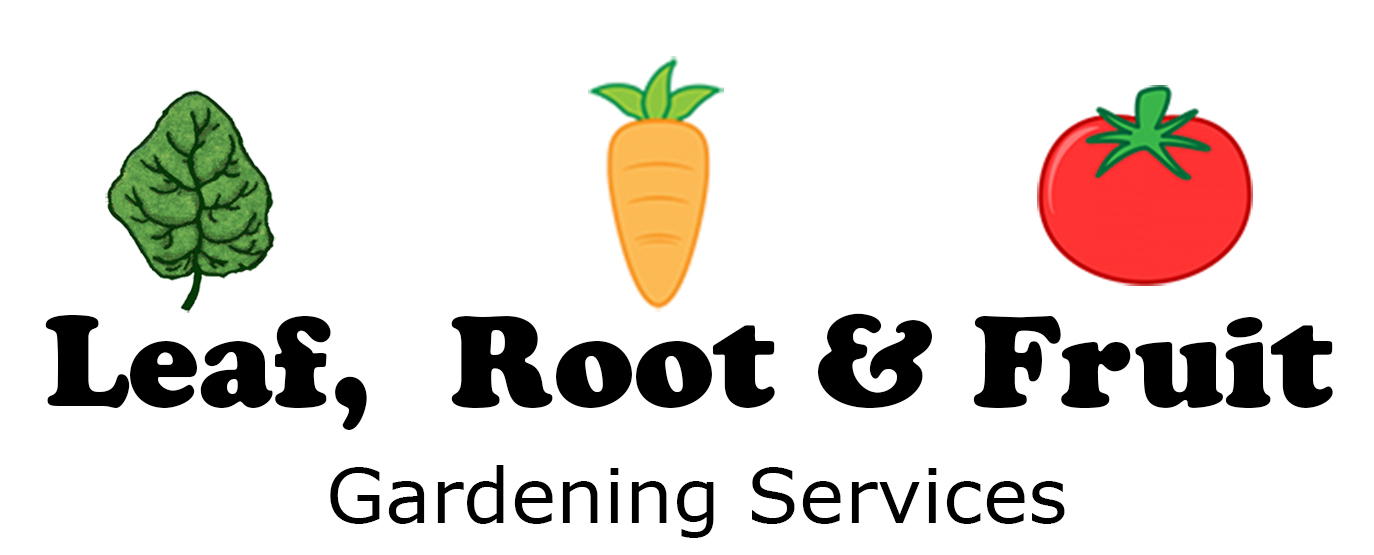The Science of Edible Gardening Workshop Series, has been designed to give you an overview of how plants grow and interact with the environment. This understanding makes decision making, planning and garden maintenance more straightforward. Observation and understanding of natural ecosystems and phenomena can help you to be a more successful and fulfilled gardener.
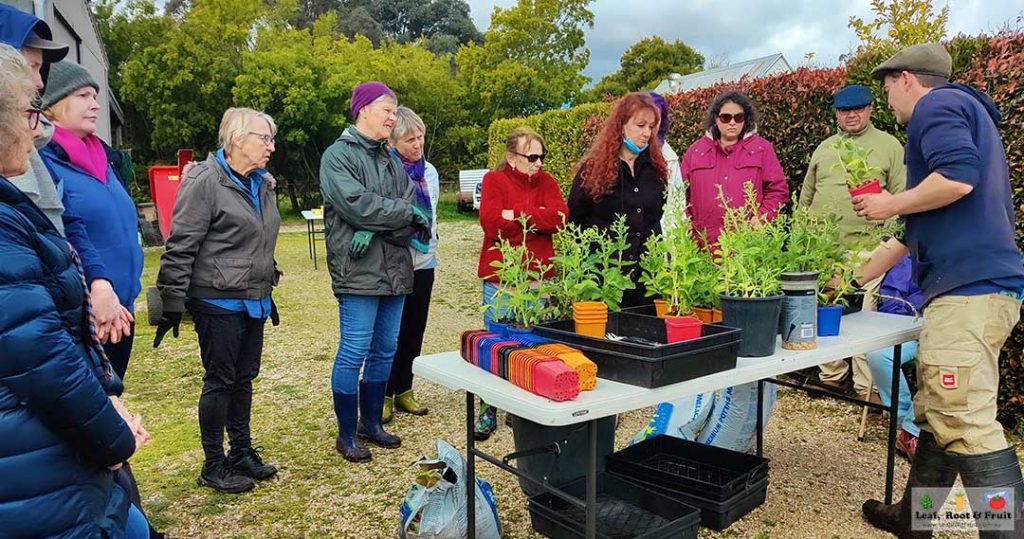
There’s a lot of information on the internet about “what” you should do to maintain your garden, yet this abundance of information often creates confusion. When you understand the “why” behind how your garden grows, then gardening becomes easy and fun!
About the series
A summary of each topic is outlined below. Specific dates and details of upcoming workshops are released every six months. Please see my events page for upcoming workshops and to book into them. Upcoming events will also be listed in my monthly newsletter and planting guide.
Most of the workshop topics are season specific and have been scheduled to run during a certain month of the year. Each topic will be repeated annually, There is no start or finish to the series – the workshops can be completed in any order and don’t need to be completed consecutively. If life gets busy, or you can’t make a particular session, then you can always come to the same session another year.
This workshop series will benefit those interested in understanding more about the natural environment around them. The classes will involve a combination of theory in a classroom setting, and hands-on practical activities on our 6 acre working permaculture property. The classes will all be held in Kyneton, a small town 80 km north-west of the city in Victoria, Australia.
Participants from all over the state attend my workshops. I look forward to hosting you at this exciting series.
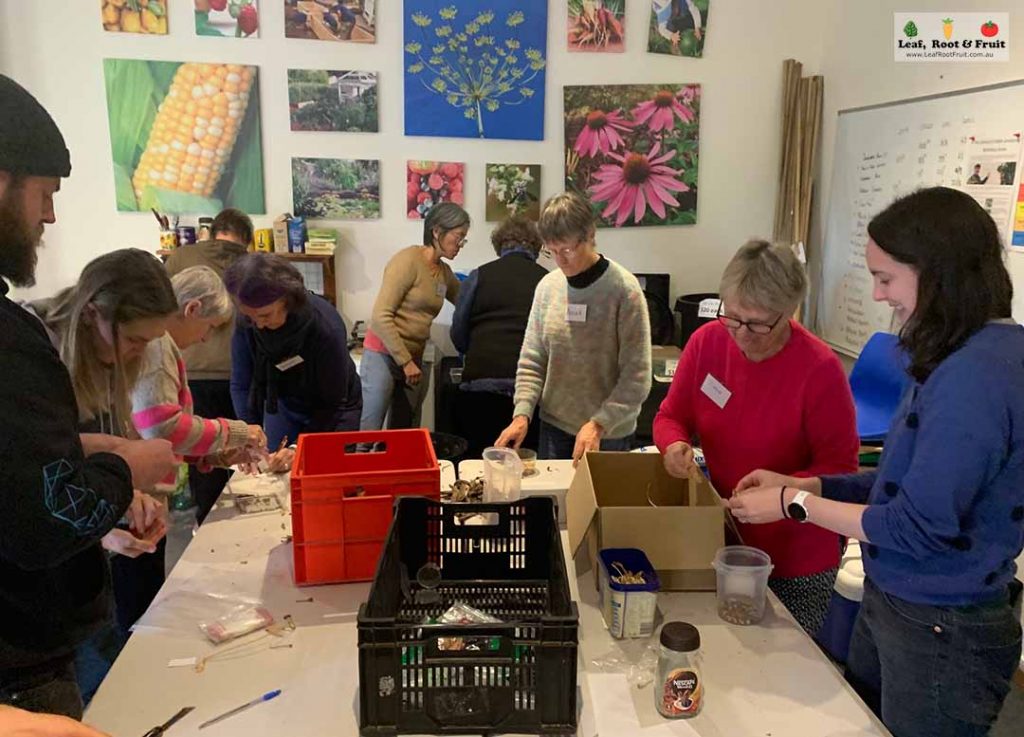
About the facilitator
I’m Duncan Cocking and I’ve been growing fruit and vegetables since I was four years old. I support others to grow food and reconnect with nature through my business Leaf, Root & Fruit. I’m passionate about reconnecting you to nature via gardening. I write about growing food and living sustainably. I’m a cool-temperate gardener and permaculture educator with over 10 years of experience hosting workshops.
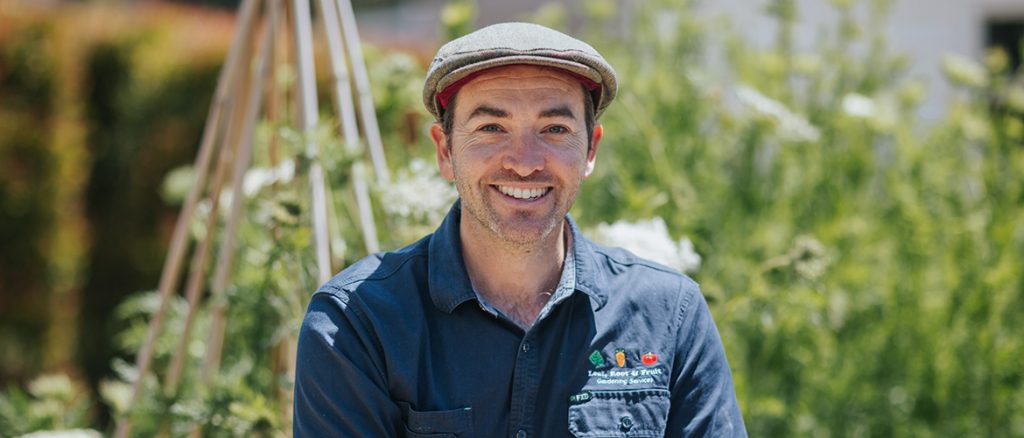
During my classes, I focus on the science behind how gardens grow. This gives you an understanding of the built-in resilience of plants. Rather than always finding problems to fix with sprays and other products, you will have a renewed focus on relaxing, observing your garden, and enjoying it. Understanding “why” minimises the amount of work you have to do in your garden.
About the facilities
In 2019 my young family and I moved from Melbourne to make a tree change to Kyneton, a small town 80 km north-west of the city in Victoria, Australia. Since then, I have been busy developing a permaculture-inspired garden ecosystem.
The property has an onsite classroom, with heating supplied by a wood burner. A split system acts as a back-up source of heating and cooling. The light filled, colourful classroom is kitted out with a large screen for running presentations (I promise that these presentations are almost entirely pictures and rarely contain words). The classroom has basic tea and coffee making facilities, ample car parking and a dedicated toilet.
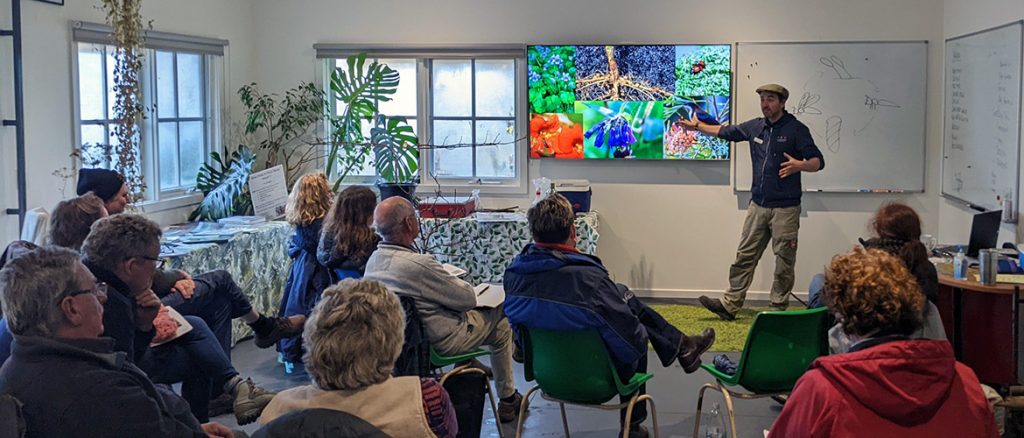
My demonstration orchard contained within a netted enclosure provides opportunities for workshop participants to explore all aspects of growing fruit trees, and contains many examples of espaliered trees. I have designed and planted an extensive berry patch, market garden beds and edible forest gardens. The kitchen garden demonstrates food growing in a more typical backyard setting.
Each workshop is based around a theme that will integrate into the entire series. There will be minimal repetition of content across each event, although certain important ideas will be revisited from time to time. You can book in for each workshop individually to pick and choose the ones relevant to you.
Your 8 workshop topics are:
Soil Testing and Fertilisers: Growing Nutrient-dense Foods (each March)
Garden Pests and How to Control Them: Population Ecology (each April)
Fruit Tree Grafting, Seed Saving and Pollination: Plant Propagation (each May)
Fruit Tree Pruning and Plant Manipulation (each June)
Garden Planning, Seasonality and Timing (each July)
The Art of Compost: Carbon and Nitrogen Cycles (each August)
Controlling Weeds: Ecological Succession and Soil (each September)
Garden Irrigation, Rainwater Tanks and Sunlight (each November)
What to bring to each class:
- Enthusiasm for learning
- Your lunch
- Water bottle
- Notepad and Pen
- Closed toed, practical shoes
- Appropriate Clothing as Kyneton can get very cold in winter and very hot in summer
Some workshops will have specific materials required, these are outlined in the individual class listings and the reminder email sent out two days prior to the event. Bringing the specific materials is usually optional.
Science of Edible Gardening Workshop Series Topics
Soil Testing and Fertilisers: Growing Nutrient-dense Foods (each March)
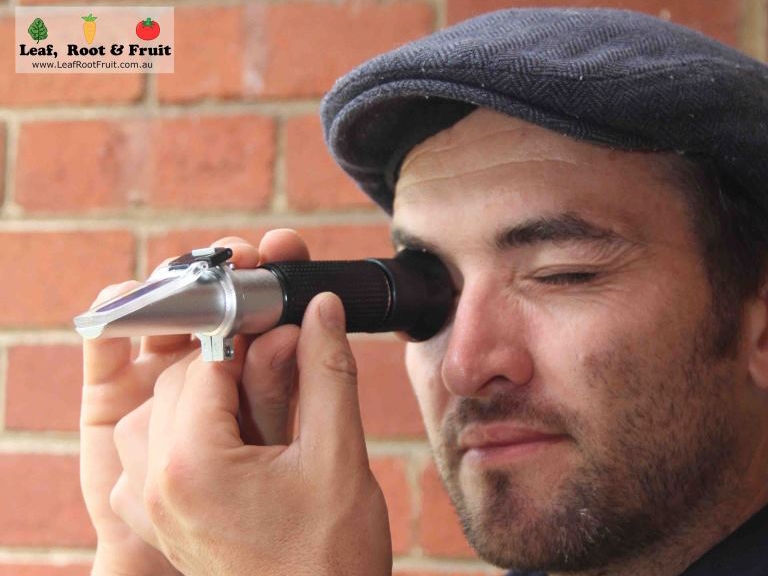
You are not imagining that veggies were tastier in the ’60s and ’70s … they actually were! You are what you eat, and plants are no different. Discover the importance of soil in growing nutrient-dense food. Enjoy some tomato taste tests and understand how nutrient density is directly correlated to flavour.
Learn some simple ways to increase the nutrient density of your food, and explore options for measuring the nutrient density. We will look at some common plant mineral deficiencies and how to correct them.
Topics:
- Soil minerals for plant health
- Soil Testing
- Clay & Sandy Soils
- Nutrient-density of Home Grown Food
- Tomato Taste Tests
Garden Pests and How to Control Them: Population Ecology (each April)
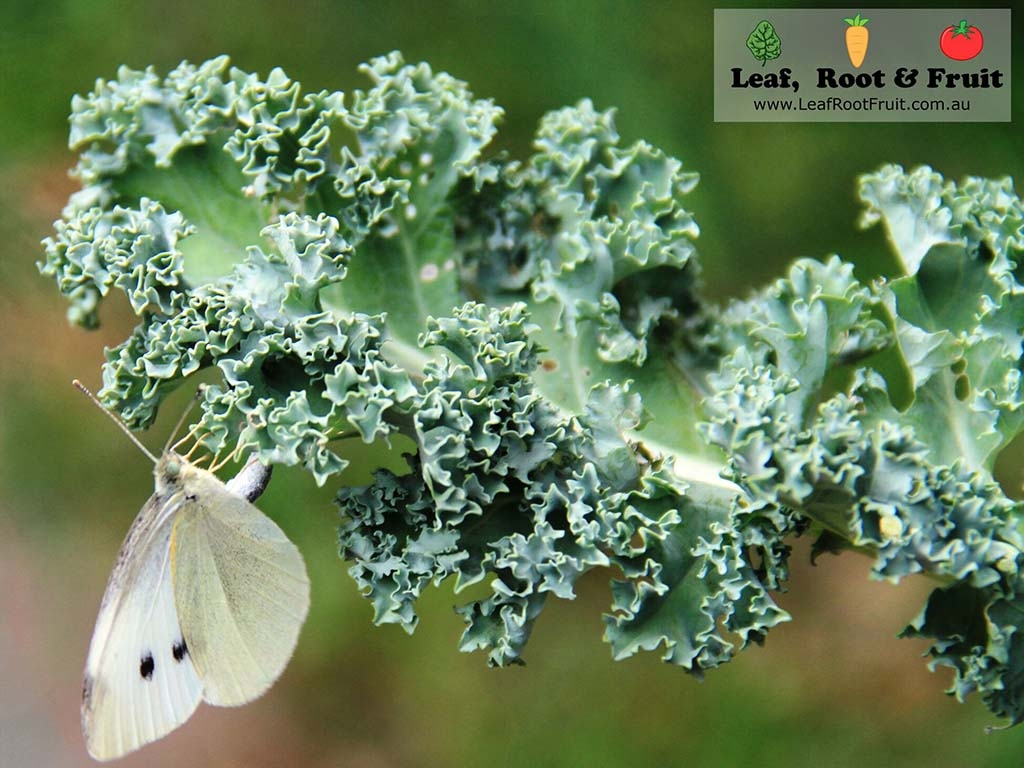
Come on a mini-beast safari and learn more about the creatures who may call your garden home! Pest control becomes easy when you change your perspective from having a garden to having an ecosystem. Understand population dynamics, pest predator interactions and how nature always corrects imbalances.
Look at how you can manage common pests with minimal effort. Improve the resilience of your garden through making a few small changes or implementing a simple project or two. Explore how flowers can increase the resilience of your garden as well, as providing a pleasing aesthetic feature.
Topics:
- Good vs Bad Bugs
- Population Ecology
- Building Resilient Garden Ecosystems
- Flowers for Attracting Beneficial Insects
- Pest Control Methods
Fruit Tree Grafting, Seed Saving and Pollination: Plant Propagation (each May)
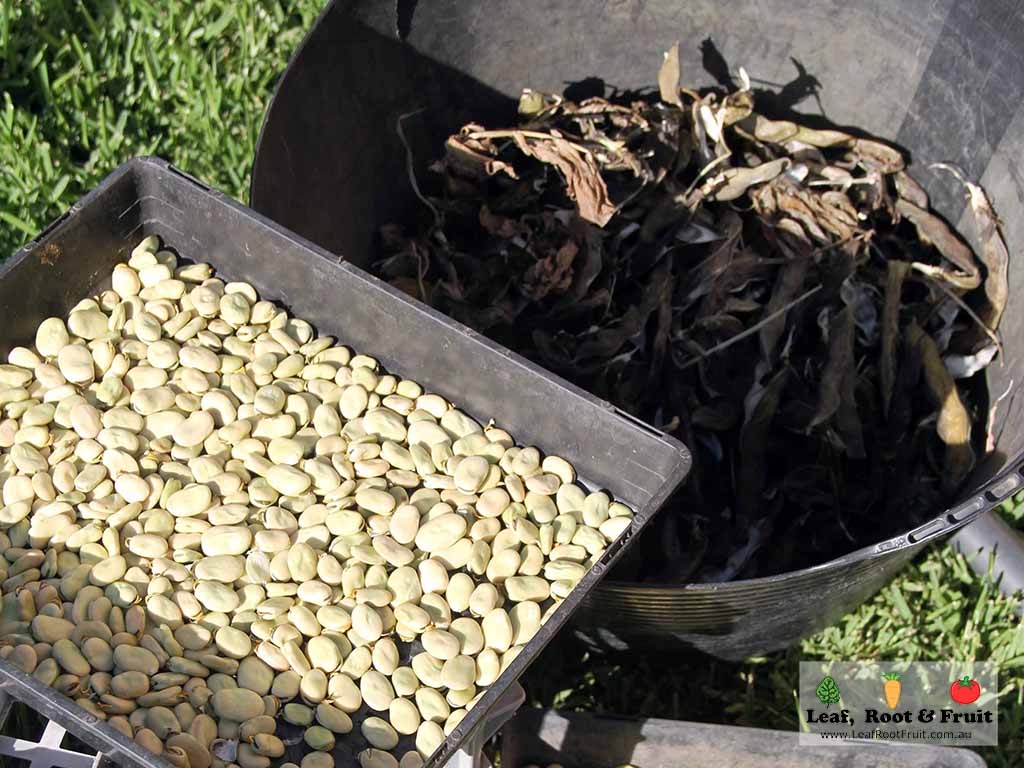
Plant reproduction is essential to food production. Delve into the world of pollination and understand why some of your plants need cross pollinators and others are self-fertile. Understand vegetative methods of plant propagation, including different types of cuttings. Learn how you can graft fruit trees and how to choose the right rootstock. Explore seed saving, and the difference between hybrid, heirloom and GMO seed.
Topics:
- Plant Life Cycles
- Fruit Tree Pollination Requirements
- Seed Saving
- Fruit Tree Grafting
- Sowing Seeds
- Propagation via Cuttings
Fruit Tree Pruning and Plant Manipulation (each June)
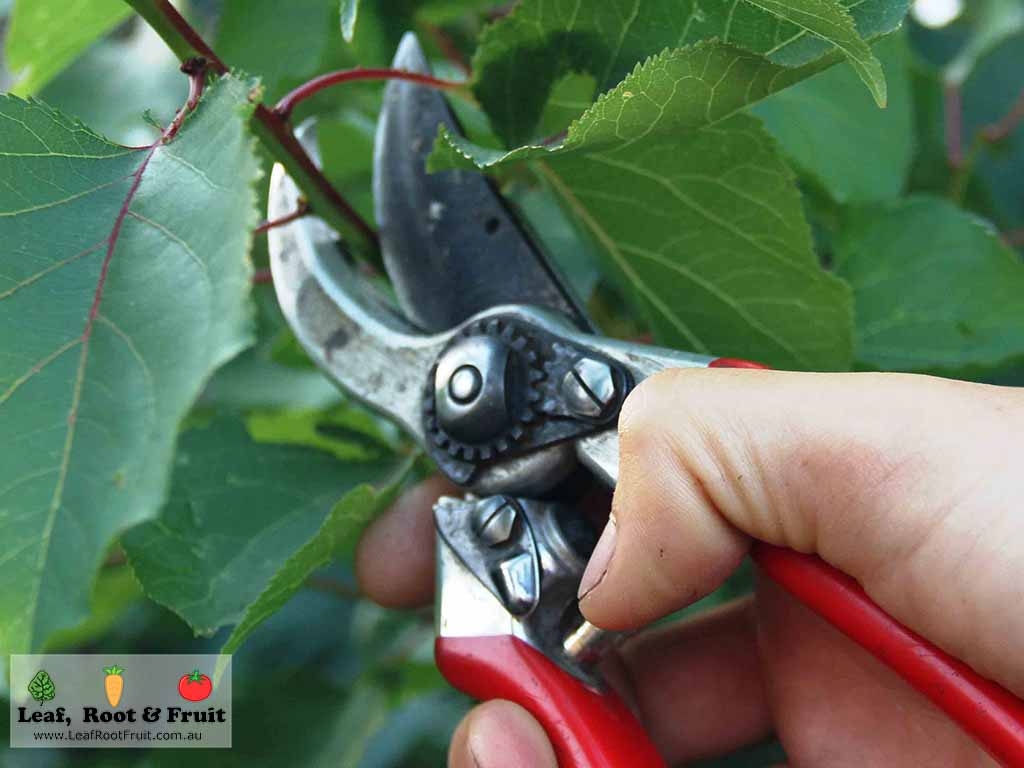
Understanding the underlying principles of plant physiology, can make all the difference to the activities we perform in the garden. Learn about the different parts of plants and how they can be manipulated. Includes demonstrations and opportunities to practice fruit tree pruning.
Topics:
- Fruit Tree Pruning Timing
- Pruning Equipment
- Types of Pruning Cuts
- Disease Prevention
- Pruning Different Types of Trees
- Setting up and Maintaining Espaliers
Garden Planning, Seasonality and Timing (each July)
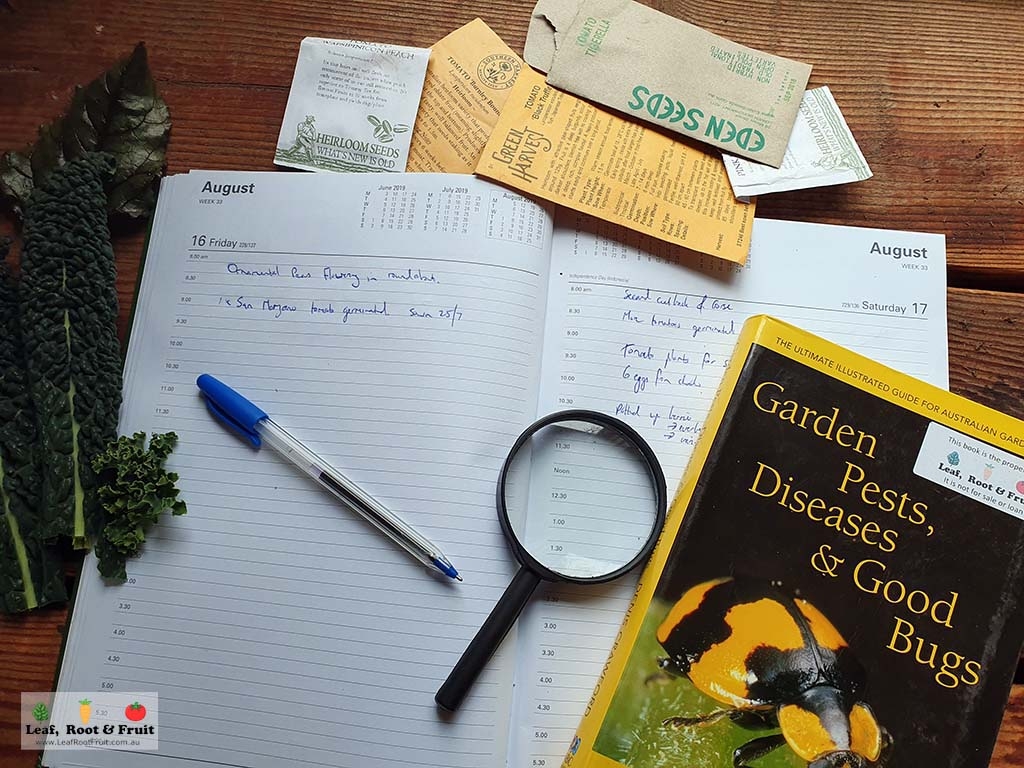
Timing of garden related events is critical to successful gardening. Understand how seasonality influences your garden and use this knowledge to plan planting, watering, pruning and pest control. Look at different methods of record keeping and how you can use the information you capture to be a better gardener. Look to nature for clues as to what to do when. Discover the secrets to growing that elusive Christmas tomato.
Topics:
- Local and Annual Weather Patterns of Victoria
- Seasonal Influences in the Garden
- Planning your Veggie Patch Planting and Other Garden Activities
- Nature Based Indicators and Indigenous Calendars
- Gardening Diaries and Other Records
The Art of Compost: Carbon and Nitrogen Cycles (each August)
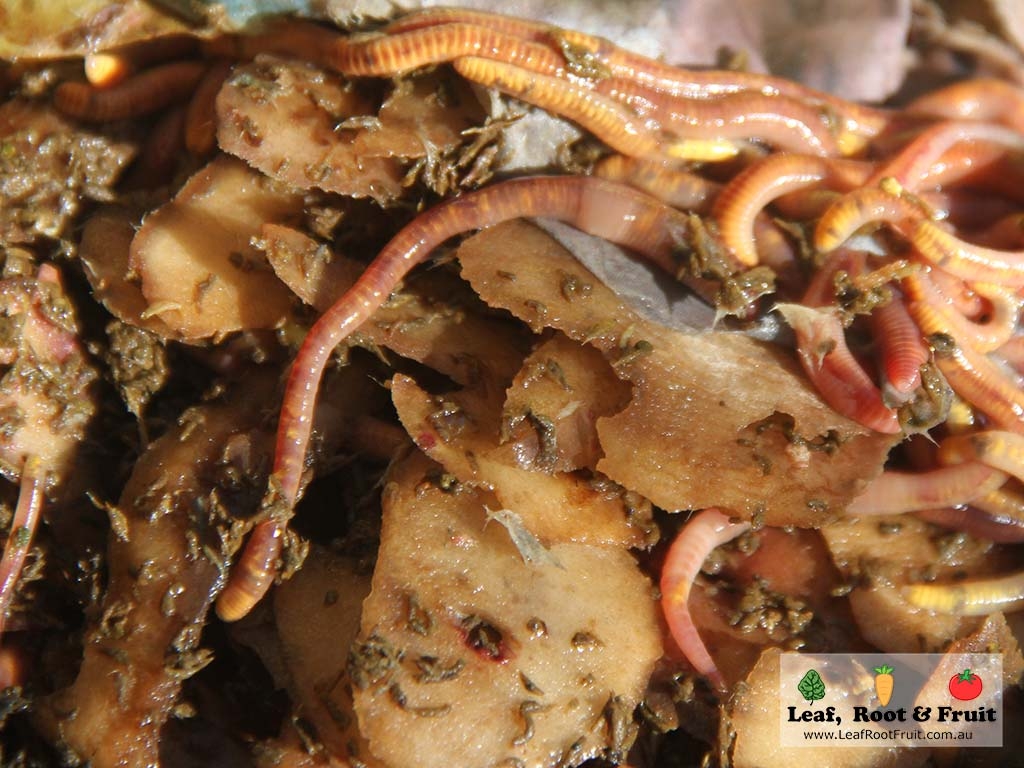
The Carbon and Nitrogen Cycles are critical to life on Earth. Learn how they underpin the making of great compost. During this workshop you will explore different composting methods and the science behind them
Topics:
- The Science of Compost
- Cold vs Hot Compost
- Bokashi
- Leaf Mould
- Worm Farms
- Chickens
- Commercial Composts
Controlling Weeds: Ecological Succession and Soil (each September)
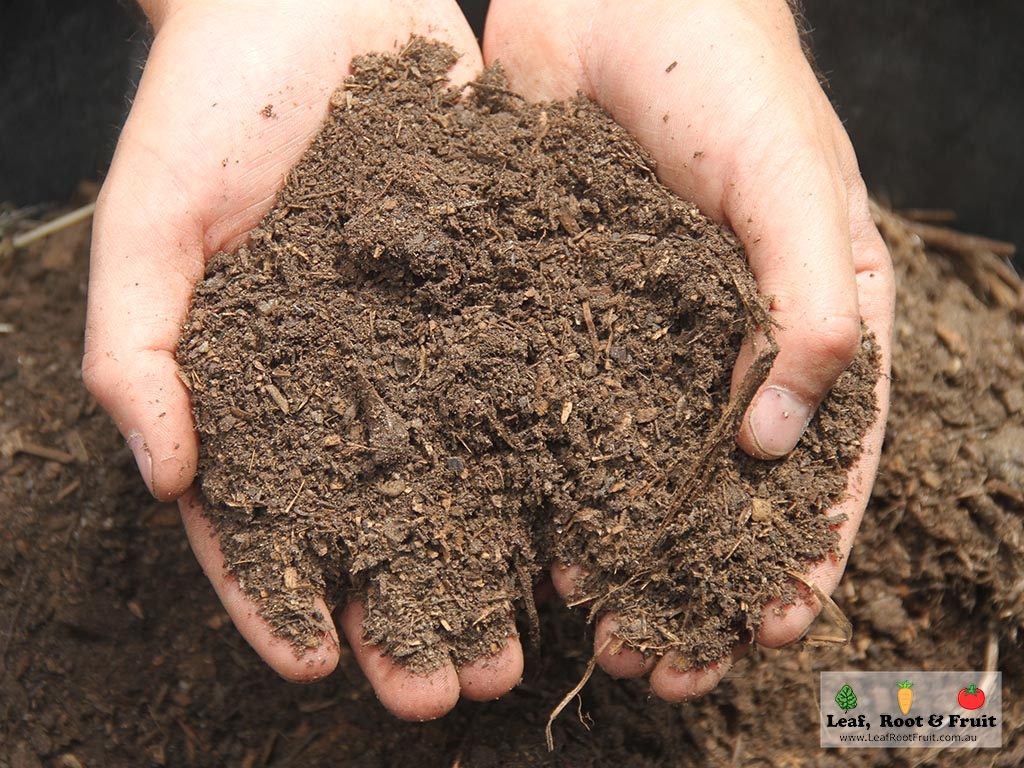
Great soil is critical to successful gardening. Discover how soils are created and understand how ecosystems evolve over time. Bring along a soil sample for us to analyse together as we explore different soil types. Look at how soil type can impact your gardening, and how you can improve it. Use weeds as soil indicators and avoid the need for expensive soil tests. Learn about the theory behind Edible Forest Gardens and understand how preparing soil for planting fruit trees is different to how you prepare your veggie patch.
Topics:
- The Importance of Soil and soil Types
- Ecological Succession in Nature
- Using Weeds as Indicators of Soil Health
- Edible Forest Gardening
- Preparing Soil for Veggie Patches and Orchards
- Weed Control Methods
Garden Irrigation, Rainwater Tanks and Sunlight (each November)
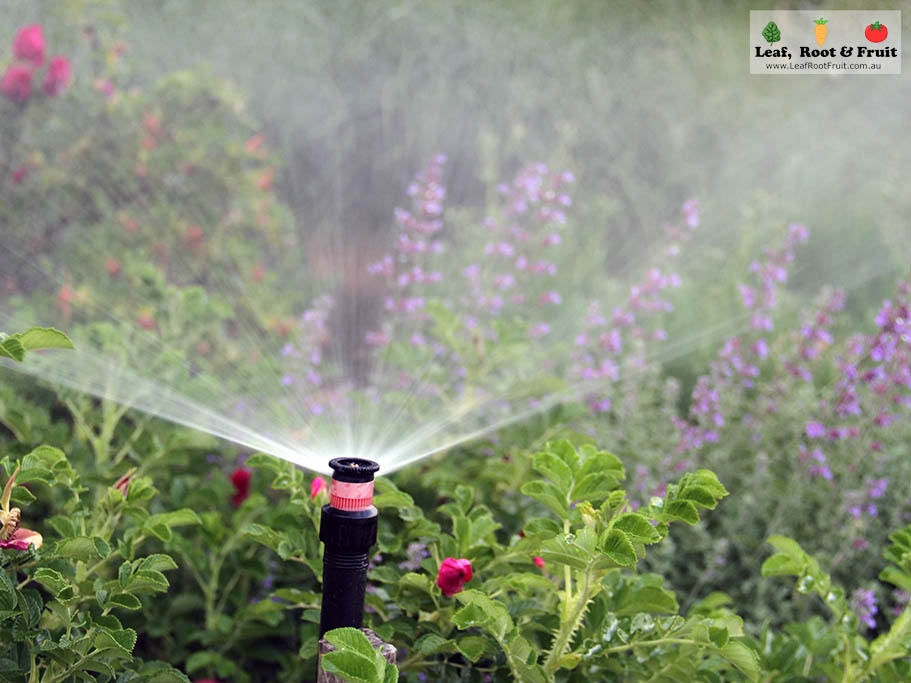
Photosynthesis is the method by which plants use sunlight to convert water and air to sugar. It is an essential process that in one way or another supports all life on Earth. This workshop in the Science of Edible Gardening Series, looks at the influence of sunlight, water and air on your garden.
Explore how light changes throughout the year and how it may impact your garden and the plants that can grow there. Delve into the world of irrigation and water tanks and rainwater capture. Discover how airflow can influence the garden, and then use this knowledge to design windbreaks or channel air through your garden.
Topics:
- Photosynthesis and how it Influences our Garden
- Fruit Thinning
- Sunlight and Shade
- Airflow and Windbreaks
- Designing Gardens for Comfort
- Shade Tolerant Edibles
- Watering and Irrigation
- Capturing Rainwater in Tanks
Frequently Asked Questions
What happens if I cannot attend a particular event in the series?
I run each event in the series annually so you can attend the topic that you missed during the following year. Dates for upcoming workshops are released every six months (usually in November for the first half of the following year and May for the second half of the year)
Can I book in for just one workshop in the series?
You sure can. Each workshop is designed around a particular theme and can be undertaken as a standalone topic. This enables you to only attend the workshops that are relevant to you, but also means that you can join the series at any stage or time of the year. There’s no start or finish to the series.
How do I book in for individual workshops?
Head to the events page of the website and locate the workshop. This will have a link to the external booking system that we use.
What facilities do you have on site?
I have a dedicated studio classroom on site with a wood burner, air conditioning and basic tea and coffee facilities. The classroom is situated on our 6 acre permaculture property with fantastic opportunities to observe nature and conduct practical activities. I have an orchard, kitchen garden, berry patch, market garden and natural landscapes to explore the science of gardening.
How long do the classes run for?
Each class starts at 10am sharp (please arrive a little early to settle in and make a cuppa). Most events will finish around 3pm. A short lunch break (BYO), and breaks to make a tea or coffee are included.
Are notes provided?
Yes, a comprehensive set of notes will be provided for each workshop.
